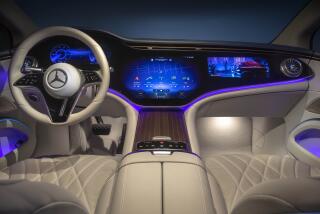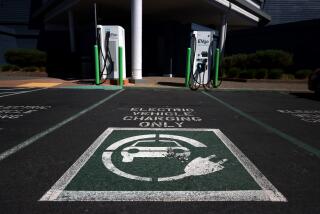EU speeds emissions probe with charges for VW, Daimler and BMW
The European Union accelerated a probe into Volkswagen AG, Daimler AG and BMW AG over suspected collusion that could have delayed clean-emissions technology for cars.
The European Commission said it sent the companies a statement of objections, laying out allegations that the German automakers participated in a cartel to limit or delay two types of technology for diesel and petrol cars, according to an emailed statement Friday. Companies can contest the charges before the EU makes a final decision, which usually brings heavy fines.
VW, Daimler and BMW allegedly colluded through technical talks on selective catalytic reduction systems between 2006 and 2014. Their coordination may have limited the AdBlue fluid added to diesel cars, reducing the effectiveness of a technology aiming to reduce nitrogen-oxide emissions from diesel cars. Talks over “Otto” particulate filters used in gasoline engines between 2009 and 2014 likely delayed the introduction of the product, the EU said.
“European consumers may have been denied the opportunity to buy cars with the best available technology,” EU Competition Commissioner Margrethe Vestager said in the statement. While companies can cooperate to develop better cars, EU rules “do not allow them to collude on exactly the opposite: not to improve their products.”
BMW may suffer the worst from any fine. Daimler said it doesn’t expect a fine because it was the first to tell the EU about the cartel, it said in an emailed statement Friday. Volkswagen has previously said it sought a fine reduction for helping regulators.
A maximum fine may be “in the area of high triple-digit millions,” Evercore ISI analysts wrote in a research note Friday. “BMW could be hit particularly hard,” they said.
BMW signaled it would fight back against the EU’s conclusions, saying the probe was “an attempt to equate permissible coordination” between firms “with unlawful cartel agreements,” it said in an emailed statement. The situation can’t be compared with price-fixing as the talks between engineers weren’t secret and “did not intend any detriment to customers or suppliers.”
VW will review the EU’s objections and respond as part of its cooperation with authorities, it said in an emailed statement.
The probe represents another challenge for the German auto industry, which is grappling with the fallout from revelations in 2015 of VW’s diesel-cheating and the disruptive shift to self-driving, electric cars. Allegations of a cartel emerged in Germany’s Spiegel magazine, which reported that VW, Daimler and BMW met starting in the 1990s to coordinate activities related to vehicle technology, costs, suppliers and strategy as well as diesel-emissions controls.
VW has put aside some 29 billion euros ($33 billion) to settle lawsuits and pay damages, and faces more than $10 billion in further claims from disgruntled investors and customers — as well as untold damage to its reputation as top executives risk being hauled before the court. At the same time, Daimler has agreed to recall some 774,000 vehicles in Europe to improve emissions performance and remains subject to investigations in Germany and the U.S.
BMW has agreed to pay an 8.5 million-euro fine, after an investigation found the company had installed the wrong emissions software in a limited number of vehicles by accident.






